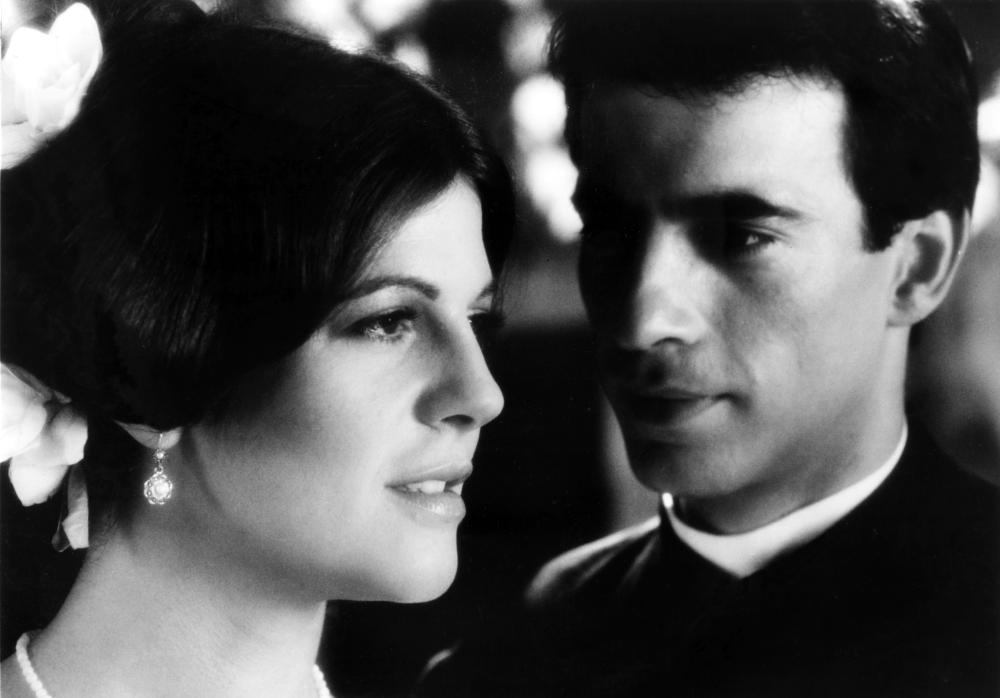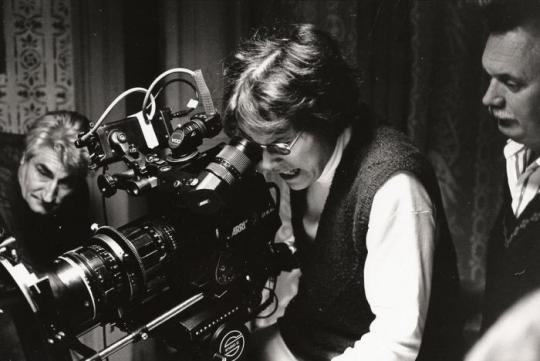"I am just a storyteller who expresses herself through movies". This is how María Luisa Bemberg defined herself after her flourishing body of work was recognised internationally. Her first film Momentos received prizes in Cartagena and Chicago, Miss Mary in Tokyo and Venice, Señora de Nadie appeared in the festivals of Taormina and Panamá while Camila was nominated at the Oscars for the Best Foreign Film. Her works were both personal and political, with the signature aesthetic which made her stand out.
Her "elegant and feminine aesthetics", according to lecturer in Argentine film Constanza Burucúa, gave her films a kind of "feminine feminism", allowing her to make socially-charged speech less threatening, "through the deceiving ingenuity of costume dramas". According to Burucúa, Bemberg's films had "an impact on an entire generation of women" a category in which she includes herself.
Bemberg chose to address social issues, in particular the women's struggles in traditional societies. Her works questioned the power relationships, with her central characters always portraying active women who defied the status quo. A "revelationary" rather than a "revolutionary" cinema according to Burucúa, "with Argentine-flavoured films, appealing nationally and internationally, authentic and tasteful".
Bemberg started as a writer and turned to directing because it was "the only way to make sure her scripts were well interpreted was to direct them" points out international film producer and distributor Rosa Bosch. Bosch also underlines the challenging process of showing Bemberg's movies abroad, especially Señora de Nadie. "The movie came out during the Falklands War, and yet we managed to send it around the world. At that time, a film represented six round boxes, about 20 kilos in total, shipped from one country to the other, needing a mound of paperwork every time they crossed a border". Bemberg’s then unknown films managed to make it to the world's festivals helped by Bosch and Sheila Whitaker, then director of the London Film Festival.
Bemberg’s third film, Camila, met with the most commercial success. It is defined by her producer, Lita Stantic, as the "Romeo and Juliet of the Río de la Plata". Stantic and Bemberg founded the film production company Gea, the first female film company in Argentina. Stantic was Bemberg's producer for ten years, at her side for five of her films. "The years in which I learned and grew most were those which I spent with María Luisa" she says, "Working with her was like defying the world". When the two women decided to work together Stantic was already recognised and trusted in the cinematic world. Stantic thereby helped legitimise Bemberg's projects. The bond between them created consecutively: Momentos, Señora de Nadie, Camila, Miss Mary and Yo, la peor de todas.

In all of her films, Bemberg expressed her fascination for women who do not follow the model set out for them. Argentine ambassador Alicia Castro defined the director as an "exceptional woman" but also a "radical feminist".
Bemberg's journey into film was unusual. From an aristocratic Argentine family, she was not satisfied by the role as a wife and mother of four that society assigned to her. Married at 22, she submitted to the social expectations of her time. Her gradual rebellion expressed itself through her debut short films and through her divorce from her husband: architect Carlos Miguens in 1975. In El mundo de la mujer and Juguetes, her two short films, she subtly expressed her frustration at being reduced to a social model of obedience and conformism. Her feminist militancy openly started with her involvement in the famous UFA (Unión Feminista Argentina) and she made her first long feature film at the age of 58.
The underlying feminist message in her works created an important and long-lasting impact on the women of her society and time. By addressing issues of family, sex and homosexuality on the screen, Bemberg embarked on risky projects, which were nevertheless very appreciated by her audience.
Julie Christie, the actress who plays the governess in Miss Mary, says of María Luisa Bemberg: "She has a very fine mind, and has great daring and courage. She is fearless about challenging the status quo, mischievous, irreverent, and playful". In Miss Mary the actress embodied the cinematic version of Bemberg's own governess. Brought up in a traditional argentine upper class family, Bemberg expressed in this film the repression of young girls' sexuality. Miss Mary is often a favourite amongst the director's friends, as it contains an authentic autobiographical side.
De eso no se habla was Bemberg's last film, in 1993. However, the unpublished screenplay of El impostor shows us her undying passion for cinema even at times of illness. Bemberg passed away from cancer in April 1995. Luckily for us, her work remains to show her indomitable spirit. The ‘Tribute to María Luisa Bemberg’ was held at the Argentine Embassy on October 23rd with speakers John King, professor of Latin American Cultural History at Warwick University; Lita Stantic, Argentine film producer and direct of ‘A Wall of Silence; Rosa Bosch, Spanish film critic and film producer, and Constanza Burucúa, Argentine lecturer in film studies.The Argentine Embassy will be screening Bemberg's films. For more info go to http://www.argentine-embassy-uk.org/docs_eng/events/events_home.shtml For more information on the work of María Luisa Bemberg, see: ‘An Argentine Passion – María Luisa Bemberg and her films’ Edited by John King, Sheila Whitaker, and Rosa Bosch. Published by Verso, 2000.

















